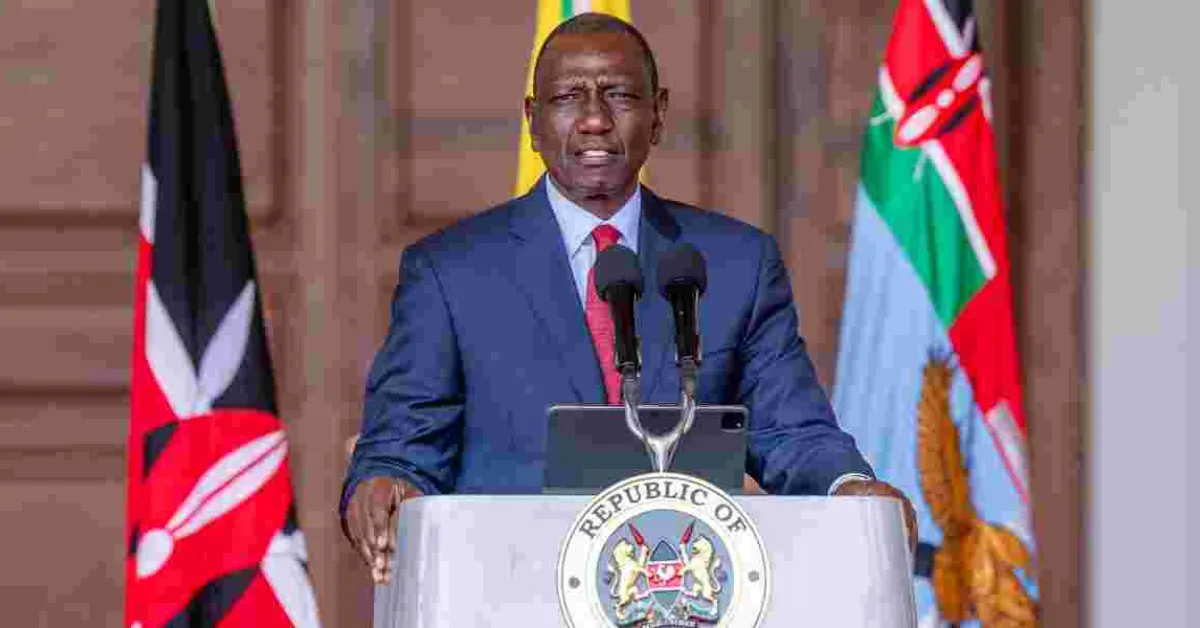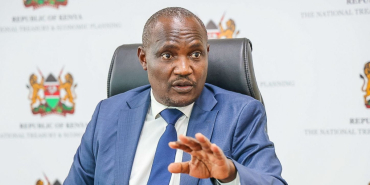Secret Billion-shilling Contracts Shake Ruto's Government

The Kenyan government has entered into several secret, high-value deals with the Indian conglomerate Adani Group and other entities which have raised concerns among Kenyans.
At the centre of the debate is a proposal for the Adani Group to operate Jomo Kenyatta International Airport (JKIA) under a 30-year concession, with a pledged investment of $2 billion to modernize the facility. This arrangement has been met with strong opposition culminating in an 18-hour strike by airport workers that severely disrupted air travel. The Kenya Airport Workers Union (KAWU) has been particularly vocal in resisting the deal. Despite agreeing to a return-to-work arrangement, KAWU secretary-general Moss Ndiema has clarified that this does not equate to acceptance of the Adani agreement. The union's primary concerns revolve around potential job losses and the opaque nature of the negotiation process.
Further exacerbating public unease is a separate negotiation between the government and Adani Energy Solutions, a subsidiary of the Adani Group, for developing new power transmission infrastructure valued at approximately 127 billion Kenyan shillings. These deals are part of a wider pattern of high-value, non-transparent agreements brokered by President William Ruto's administration, which have raised significant concerns about governance and accountability. Other controversial arrangements include a 14 billion shilling money printing tender, a 16.5 billion shilling edible oils import deal, and an oil agreement with Gulf nations.
The lack of transparency surrounding these deals has been highlighted by Auditor-General Nancy Gathungu, who reports that her office was denied access to relevant contract documents. The government's importation of 125,000 tonnes of duty-free edible oil through the Kenya National Trading Corporation (KNTC) has been marred by allegations of single-sourcing to companies with ties to the ruling party and price inflation by top officials. These actions have undermined the stated goal of reducing cooking oil costs for consumers. Adding to the list of opaque dealings is the deployment of Kenyan police officers to Haiti, supported by a $100 million pledge from the US government. The lack of transparency regarding the specifics of this deployment has fueled further public distrust.
The Adani Group's involvement in Kenya has raised additional concerns due to its controversial track record in other countries, where it has faced accusations of environmental violations, labour rights abuses, and corruption. These allegations have intensified apprehensions about the potential consequences of the JKIA deal and other agreements with the conglomerate. While the Kenyan government defends the JKIA deal as a necessary step for modernization and investment, critics, including former Vice President Kalonzo Musyoka, have called for its abandonment. Musyoka has emphasized the need for open and transparent negotiations when dealing with significant national assets.
The Senate has also expressed reservations about the deal, summoning Transport and Roads CS Davis Chirchir to provide details on the concession agreement. Senators have voiced concerns that the privately initiated proposal could potentially serve as a conduit for embezzlement. Chirchir has clarified that the deal remains in the proposal stage and has not been finalized.














Comments
JKIA is worth more than a…
Permalink
JKIA is worth more than a trillion.............https://kenyatalk.com/t/gov-wavinya-ndeti-prosecution-update/511561
Nairobi West hospital owner…
Permalink
Nairobi West hospital owner Jayesh Saini is the ADANI agent in Kenya and is the one who has been given SHIF contract. Another Kamlesh Pattni.
Why does the Indian…
Permalink
Why does the Indian government want to control JKIA?
Ruto MUST GO
Matatizo yetu makubwa…
Permalink
Matatizo yetu makubwa yanatokana na imani bandia ya kutoka ughaibuni:
https://youtu.be/mycg2KGJJTE?si=eRCI-_akQF8O0xyc
Add new comment